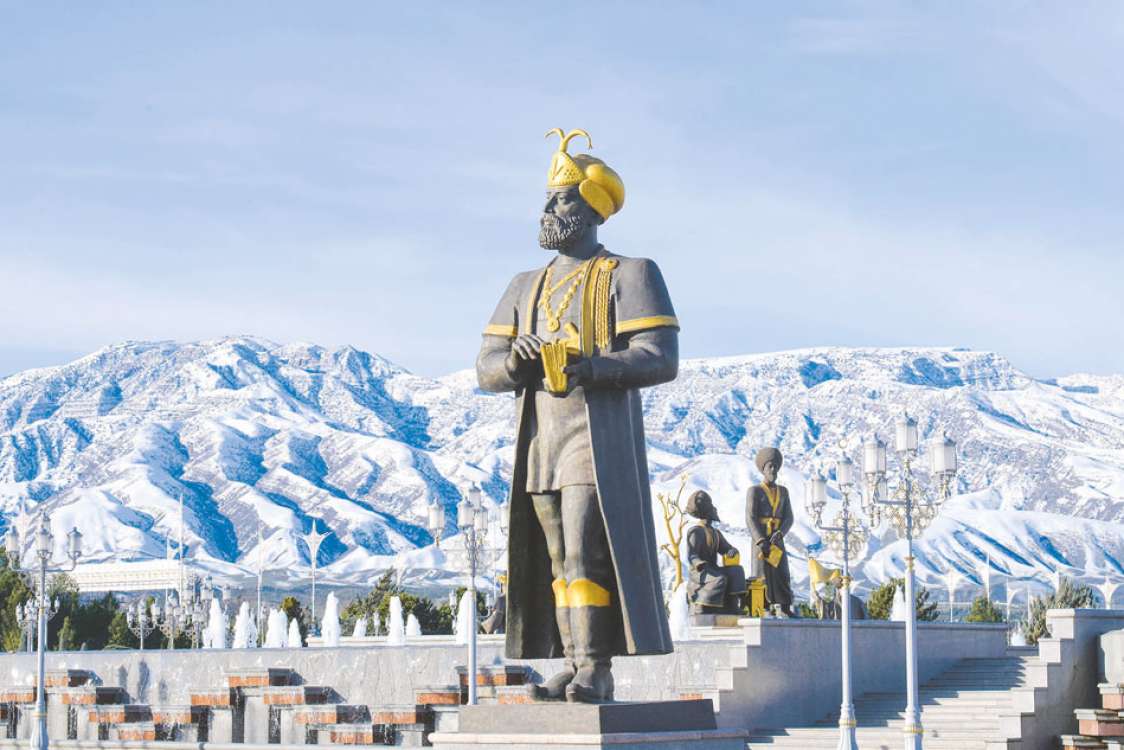

 439
439
Bairam Khan played a crucial role in strengthening and prospering the Mughal dynasty, according to Tyazegul Imamkuliyeva, an Associate Professor at Dovletmammet Azadi Turkmen National Institute of World Languages, who shared her insights in an article published on Turkmen Metbugat.
Bairam Khan was a descendant of the Garagoyunly Turkmen. He was called the Khan of all Khans because he helped turn the Mughal state in India into an empire. Bairam Khan was a skilled diplomat, writer, and speaker, who helped establish good relations between India and the Middle East. He was also a poet, who revealed the rich spiritual world of the Turkmen people through his immortal verses.
According to Professor Ram Kishore Pandey, who wrote the book "Life and Achievements of Muhammad Bairam Khan Turkoman," Bairam Khan was unmatched in courage, statecraft, science, literature, and war experience. However, he faced opposition from enemies in the palace because he was a Turkmen, not a Mughal. The most significant work about his life and achievements is the historical and literary work of Abul Fazl Akbarnama, particularly its first and second volumes.
Although historical sources have preserved much valuable information about Bairam Khan, the exact date of his birth is unknown. According to some studies, he was born around 1497–1498 in the city of Gala-i Zafar in the Badakhshan region. Bairam Khan lost his mother at an early age, and his upbringing and education were handled by his grandfather and relatives. Bairam Khan mastered theological sciences and literature and had a good command of Turkic, Arabic, and Farsi. He was also a musician. Bairam Khan was interested in poetry and music, and he tried to understand their power and influence on people. He believed that a pen could be a more powerful weapon than a sharp saber. At the same time, Bairam Khan devoted much time to mastering the art of war.
Ruler Babur admired Bairam Khan's personal qualities and appointed him as a mentor and teacher to his son, Humayun. Bairam Khan became close friends with Humayun due to his knowledge and behavior. After Humayun's father passed away, Humayun appointed Bairam Khan as chief vizier and commander. Bairam Khan was instrumental in Humayun's Bengal campaign, and his courage and resourcefulness saved the vanguard of the Mughal troops.
Bairam Khan's loyalty and integrity towards Humayun were evident after the Battle of Kannauj, where he was captured by the Pashtun military leader Sher Shah. Sher Shah tried to win over Bairam Khan, but he refused, stating that true affection could not be betrayed. Bairam Khan managed to escape and rejoined Humayun, remaining loyal to him.
Bairam Khan's diplomatic skills were evident when he reconciled Humayun with his brothers. He also organized the visit of the dethroned Humayun to the ruler of the Safavid state. Bairam Khan persuaded Shah Tahmasp to allocate troops to help Humayun, which led to Humayun's victories and return to the Mughal throne. After regaining his throne, Humayun appointed Bairam Khan as governor of the Kandahar region. Bayram Khan was awarded the high title "khan-i-khana," which means "khan of all khans" by a joint decree of Tahmasp and Humayun. Humayun also appointed Bairam Khan as the guardian of his son, Prince Akbar, demonstrating the highest level of trust.
As a statesman, Bairam Khan made all important decisions concerning state administration and took decisive measures to strengthen discipline in the army and ensure its combat effectiveness. Bairam Khan rejected the cowardly advice to retreat to Kabul. He made an inspired speech before the battle and, with his 20,000-strong Mughal army, won a decisive victory over the 100,000-strong army of Hindu rajas, who also had 1,500 war elephants.
While at the court of the Great Mughals, Bairam Khan never forgot that he was a Turkmen. He mourned the fact that his Baharly tribe had lost their homeland after the fall of the Turkmen state of Garagoyunly. Bairam Khan resettled the Baharly Turkmen living in Khorasan and Hemedan to Kandahar after receiving the consent of Humayun and Tahmasp I.
Bairam Khan was a reasonable, courageous, and faithful man. He appointed worthy and capable people to positions in government and other services and demanded justice from them. He was a well-respected figure in the Mughal Empire.
Photo by: Sagit BATALOV
 4396
4396
 3569
3569
 3473
3473
 83
83



 107
107

 117
117

 233
233

 174
174
